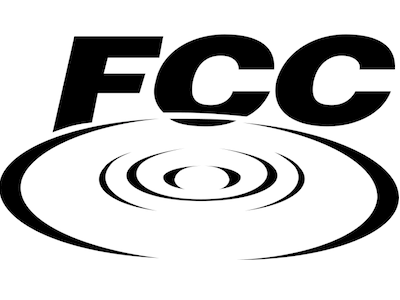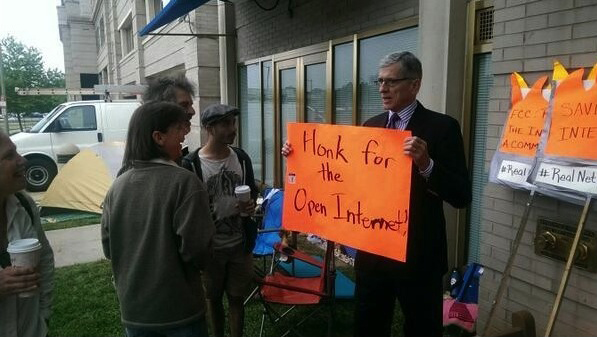FCC Chairman's Proposal Will Radically Change The Rules Of The Internet
Get Tom's Hardware's best news and in-depth reviews, straight to your inbox.
You are now subscribed
Your newsletter sign-up was successful
The FCC is making news again today as Chairman Wheeler submitted a draft that, if approved by the FCC commissioners on February 26, will revolutionize the Internet in the United States.
The Open Internet
The first proposal of this draft is the "Open Internet." This proposal calls for the removal of certain Internet limitations placed on users by ISPs. This proposal would make it illegal for ISPs to limit or otherwise interfere with the Internet based on content. In other words, it is no longer legal for ISPs to throttle an application like Netflix to reduce bandwidth on the ISP's network. It also forbids ISPs to monitor and spy on the Internet use of their customers.
ISPs will no longer be permitted to ask for paid prioritization from web-based services such as Netflix. One application cannot be favored to run faster, and because companies can't pay those fees, ISPs cannot reduce or block user access to this service. (No fast lanes.)
This proposal is being made to help protect against ISPs abusing their control over the Internet. Additionally, it's designed to promote growth and competition between ISPs, which will need to strengthen and innovate their networks in some areas to handle the additional traffic and bandwidth. ISPs also lose the ability to reduce user bandwidth for any reason, and they will lose the ability to block content or applications at their own discretion.
As a result of outlawing Internet throttling and unjust blocking of websites, greater transparency is deemed mandatory by the FCC to ensure that these new regulations are being followed.
To justify the FCC's legal right to make these changes, Chairman Wheeler used two articles of legislation, Title II of the Communications Act and Section 706 of the Telecommunications Act of 1996. These two laws mandate open, unrestricted use of the Internet.
Recently, Republicans in Congress have made attempts to limit the power that Section 706 of the Telecommunications Act gave the FCC to make laws and regulations about the Internet. In response, Chairman Wheeler cited the case of Verizon Communications Inc vs. the FCC (which took place last year) in his draft to further justify its use.
Get Tom's Hardware's best news and in-depth reviews, straight to your inbox.
Broadband As A Telecommunications Service
In addition to justifying the open Internet proposal, Title II of the Communications Act also calls for the reclassification of "broadband Internet access service" as a telecommunications service. This puts the responsibility of providing Internet service to the various city and state governments (as well as ostensibly the federal government) and away from a retail position under control of cable, phone, and wireless providers.
This reclassification of broadband as a telecommunications service will effectively undermine state laws which have been set up in an effort to prevent municipal broadband networks from emerging. Following the vote, this would allow municipalities to follow in the footsteps of Wilson, North Carolina; Chattanooga, Tennessee; and Cedar Falls, Iowa, all of which currently rank as having the fastest Internet in the United States after establishing their own municipal broadband networks.
Reasonable Network Management
The draft allows for management of the network on several levels. Understanding that innovation will require updating existing networks, this provision of the draft will excuse ISPs from minor delays or outages of service. Only a limited number of service outages will be tolerated, however, and ISPs cannot use these outages as an excuse to limit data usage of customers who purchase unlimited data plans.
Services such as Skype and other VoIP applications are no longer classified as "broadband Internet access" services. These services cannot undermine the performance of services which are classified as being "broadband Internet access," and as such are still open to being throttled if other services running on the network require additional bandwidth. It is mandatory for ISPs to be transparent and disclose details when throttling these services.
The FCC will not be responsible for hearing complaints from users and ISPs about regulations and usage of the Internet and will be given the authority to enforce action to resolve these complaints only if deemed necessary.
Will The Vote Pass?
The draft has now been circulated and is due to be voted on at the end of the month. With so many critical changes in the draft, extreme opposition should be expected from ISPs and members of the government who are against the FCC's plan.
When the FCC voted to approve the definition change of Broadband last week, many were skeptical about the actions that ISPs would take in response, speculating that they would simply drop "broadband" from their advertisements to avoid increasing bandwidth. This new draft, if passed, will push for action and likely result in the adoption of the new standard.
If Wheeler's proposal passes, the Internet will undergo a metamorphosis over the coming years, as municipal networks are developed and ISPs race to improve their networks or risk being replaced. Either way, it could mean major improvements in Internet access and speeds for U.S. citizens. Internet bandwidth should increase, and the price for that bandwidth should drop. It could, then, be a nightmare for ISPs, as they could see their profit margins drop with the cost of developing better networks.
Expect to see more news from the FCC throughout the coming months as the battle for adoption of this proposal moves forward.
Follow us @tomshardware, on Facebook and on Google+.
Seth Colaner previously served as News Director at Tom's Hardware. He covered technology news, focusing on keyboards, virtual reality, and wearables.
-
Xenophage I'm sure this won't suck, because central planning by the federal government has worked so well in every other area of the economy.Reply -
maverickmage After years of being taken through the dryers by the ISPs, it's nice to see the FCC try and do something... anything... to break to status quo.Reply -
Unolocogringo Hopefully this will pass. But their will be big money from big businesses' trying to block it.Reply
Republican donors do not want it to be passed as it will cut into their profit margins and donations. -
TheSkaBoss If my city-provided internet is as good of quality as my city-provided water, I'm going to kill myself.Reply
"This puts the responsibility of providing Internet service to the various city and state governments (as well as ostensibly the federal government) and away from a retail position under control of cable, phone, and wireless providers." -
TheSkaBoss "Hopefully this will pass. But their will be big money from big businesses' trying to block it.Reply
Republican donors do not want it to be passed as it will cut into their profit margins and donations. "
You're right, the company's have been lobbying for a few years now...
"The President’s re-election campaign and groups tied to it have been the largest single recipients of the company’s aid, the study found, taking in nearly $224,000."
http://www.commondreams.org/newswire/2013/09/05/new-study-highlights-verizons-53-million-campaign-donations-and-lobbying -
Reepca So if I got this right (doubtful), the proposal essentially seeks to regulate ISPs more for the benefit of the consumer. Which is great and all, if it does what it says - ISPs have been generally hated as lazy extortionists for awhile now.Reply
The part I have mixed feelings about is "This puts the responsibility of providing Internet service to the various city and state governments (as well as ostensibly the federal government) ". The issue with mandating certain public services is that it gets paid for by those who use it as well as by those who do not, as well as the possibility of driving services based in the free market to extinction (the idea of the only internet available being controlled by the federal government is not appealing in the slightest).
I have trouble seeing ISPs out-compete "free internet" that everyone, via taxes, is forced to buy. Only in niche cases where lots of bandwidth or security/privacy is needed could I see them surviving, which may be just as well. I guess for me it really comes down to how much it would cost to develop/maintain these public networks - if it's low enough, I could see it being reasonable for taxes to pay for it, even if I dislike the principle of someone having to pay for what they don't use.
EDIT: If taxpayer money isn't used to help municipal-ISP out-compete the alternative (and municipal-ISP is subject to the same challenges and requirements as private ISPs), then I can't really see an issue with it. Less like public schools, more like public garbage disposal/electricity/water. You pay for it, it keeps itself going, it's a healthy part of the free market, hooray. -
house70 Hopefully this will be the beginning of the end for the cartel-style ruling on ISP's part.Reply -
gudomlig I hope this survives in some form. I live in chattanooga and i get 100mps service for less money than i was getting 5mbs service from comcast plus best customer support you could hope for. Affordable, awesome high speed isn't that freakin difficult and the only reason companies like comcast charge you an arm and a leg for crappy service is because they can...we need new internet laws to help change that.Reply -
TheSecondPower So they want to encourage more competitive practices and maintain a free and open internet, while at the same time making cities and state governments into ISPs? How are you encouraging freedom and competition by putting internet service into the hands of the government? Competition only occurs when two or more private companies can compete.Reply -
junkeymonkey its a shame as with all the rest they claim they do rulal area folks like me that have no cable access or dsl and still as of today the year 2014 in the united states world richest most powerful nation all we got is 56k dial up or satellite or cell phone style and that's still not up to 4g around here yetReply
so I will assume this pertains only to city folks or areas that got all the best service and will now get that upgraded ???


